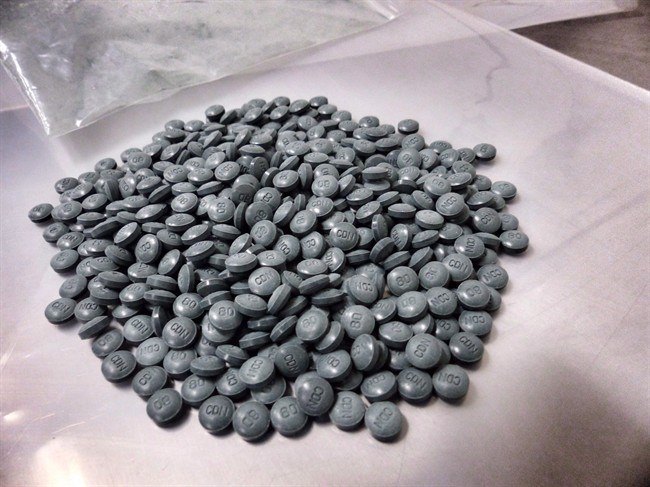More people in B.C. died from drug overdoses in September than in the month before, a sign that fentanyl continues to take a deadly toll on drug users.
The total number of drug-related deaths in September was 56, up from 49 in August, according to the latest statistics from the B.C. Coroners Service.
Coroner Barb McLintock said while monthly overdose deaths are down significantly from 81 deaths in January, they remain a serious concern.
“It’s better than going up, but we certainly need to keep it on a downward direction because it’s so much higher than last year,” McLintock said. “We definitely still have a lot more work to do.”
There were 555 deaths as a result of drug overdoses in the first nine months of 2016, eclipsing the 508 drug-related deaths in B.C. in all of 2015.
Fentanyl remains a major factor in the spike. The powerful opioid was detected in 61 per cent of all drug deaths this year, or 302 deaths, more than triple the number of fentanyl-related deaths for the same period last year.
The Coroners Service found that the majority of fatalities involve males (79 per cent) and particularly males between the age of 19 and 39 (60 per cent).
Vancouver Island continues to have the worst rate of illicit drug-overdose deaths in the province this year, with a fatality rate of 18.5 deaths per 100,000 to the end of September. Island Health saw the largest increase in its fatality rate — 137 per cent — compared to 2015.
There have been 107 drug-related deaths on Vancouver Island and 44 in Victoria to the end of September.
The rise in fentanyl-related deaths led provincial health officer Dr. Perry Kendall to declare a public-health emergency. Since then, a provincial task force has been created to come up with strategies to prevent opioid-related overdose deaths.
“A lot of health authorities are working on getting supervised-consumption sites outside the Downtown East Side,” McLintock said. “There are still a lot of things in the pipeline that could get the numbers [of drug deaths] right down again.”
The City of Victoria, Victoria police and Island Health are working to establish a safe-consumption site. The current rules require Island Health to apply for a federal exemption to operate the site. Coun. Marianne Alto said she hopes that application will be filed by the end of the year.
The province has also been distributing take-home naloxone kits, an opioid antidote that can reverse the effects of an overdose and can stimulate breathing.
As of Sept. 21, a total of 13,746 naloxone kits had been distributed with reports of 2,149 kits used to reverse opioid overdoses; 11,629 people have received training to administer naloxone.
Victoria police recently started carrying naloxone nasal spray and the RCMP are in the process of distributing naloxone kits. All ambulance crews and 46 fire departments carry naloxone.
Read the other stories in our series on fentanyl here.



